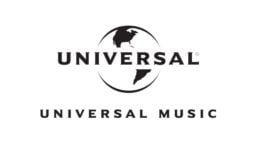Well, it’s all on the record now.
Universal Music Group has confirmed to MBW that it shares advances and ‘breakage’ cash from the likes of Spotify and YouTube with its artists as a matter of business policy.
All three major recorded music companies have now guaranteed that, in 2015 at least, they assign surplus income from much-discussed ‘minimum revenue guarantees’ to their acts.
Breakage, the unallocated money left in the pot when an advance or revenue guarantee from a digital service to a record label exceeds royalty payments in a given period, is one of the biggest talking points of recent years amongst managers.
Some have suggested that this cash sometimes ends up being hogged by the major labels… and subsequently remains unreported to artists.
Not so, say the majors. At least, not as we stand today.
“We choose to share with artists minimum guarantees as well as unrecouped digital advances, where they exist.”
UMG spokesperson
As verified last week by a leaked royalty statement obtained by MBW, Warner has led the way by guaranteeing artists breakage payments since 2009 – a year after Spotify was born.
Meanwhile, Sony Music Entertainment has also enacted an internal ‘Breakage Policy’.
Revealed in the wake of its leaked 2011 contract with Spotify, it pledges to “share with its recording artists all unallocated income from advances, non-recoupable payments and minimum revenue guarantees that Sony Music receives under its digital distribution deals”.
Despite inevitable whispers in the market that Universal might not play ball, the major has now publicly dispelled this idea.
UMG tells MBW that any money left over as breakage from the likes of Spotify, Deezer, Rdio et al is definitely shared with its performers.
“Our approach to artist compensation is designed to provide income across multiple sources,” a UMG spokesperson told MBW this afternoon.
“While the most significant source is comprised of royalty payments, we also choose to share with artists minimum guarantees as well as unrecouped digital advances, where they exist.
“For example, by the end of 2015, artists will be allocated a share of unrecouped advances from the current calendar year.”
Here comes the caveat of the moment, though: how much of this cash is shared with artists obviously remains something of a mystery – coming down, as you’d expect, to individual contractual agreements. And how much is distributed to ‘catalogue’ artists is even more uncertain.
Yet the fact remains that all three major labels have now promised that their artists get a slice of breakage from streaming services.
That must bring some kind of progress to the debate.
MBW understands that Warner was the first major label to pledge to share breakage with its acts. How long UMG and Sony have been following suit is unclear.
A source close to the biggest two majors told MBW today: “The idea that Sony and Universal just gobble up huge advances while agreeing to low royalty rates is a bit of a conspiracy theory.
“Both of them have to use guaranteed royalty rates to attract artists to sign during negotiations – it’s a competitive advantage in their core business of A&R. They certainly don’t want to get left behind.”
There is one slightly unfortunate aspect of all three majors going public on their ‘breakage’ policy right now, though.
This money is far less significant than it was before on-demand audio streaming had a few established players (and one dominant player in Spotify) – all of which continue to grow fast and pay rights-holders reliably.
Breakage really becomes important when new, untested licensed streaming services arrive – and then collapse a few months or years down the line.
It’s effectively safety money for music rights-holders.
Which, we’re now being promised, benefits artists just as it does the major labels…
As for the indies? Last year, worldwide independent music body WIN launched its Fair Digital Deal Declaration.
It’s since been signed by over 1,000 indie labels who all promise to ‘account to artists a good-faith pro-rata share of any revenues and other compensation from digital services that stem from the monetisation of recordings but are not attributed to specific recordings or performances’.Music Business Worldwide



